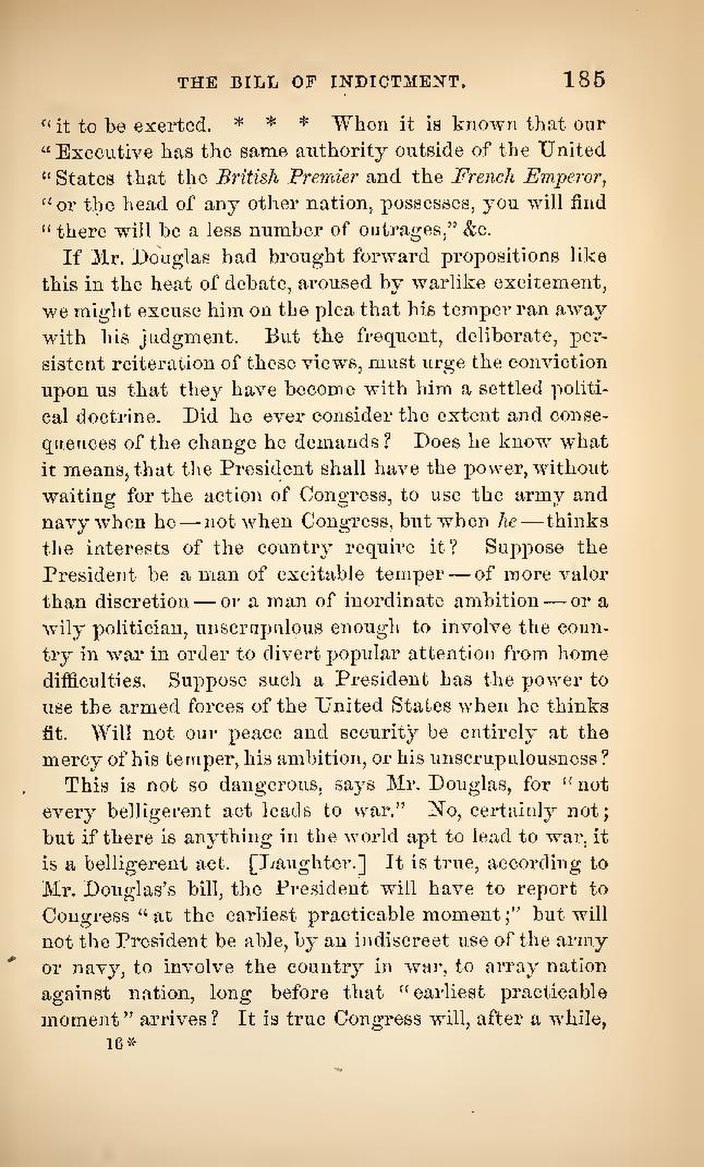it to be exerted. * * * When it is known that our Executive has the same authority outside of the United States that the British Premier and the French Emperor, or the head of any other nation, possesses, you will find there will be a less number of outrages,” &c.
If Mr. Douglas had brought forward propositions like this in the heat of debate, aroused by warlike excitement, we might excuse him on the plea that his temper ran away with his judgment. But the frequent, deliberate, persistent reiteration of these views, must urge the conviction upon us that they have become with him a settled political doctrine. Did he ever consider the extent and consequences of the change he demands? Does he know what it means, that the President shall have the power, without waiting for the action of Congress, to use the army and navy when he—not when Congress, but when he—thinks the interests of the country require it? Suppose the President be a man of excitable temper—of more valor than discretion—or a man of inordinate ambition—or a wily politician, unscrupulous enough to involve the country in war in order to divert popular attention from home difficulties. Suppose such a President has the power to use the armed forces of the United States when he thinks fit. Will not our peace and security be entirely at the mercy of his temper, his ambition, or his unscrupulousness?
This is not so dangerous, says Mr. Douglas, for “not every belligerent act leads to war.” No, certainly not; but if there is anything in the world apt to lead to war, it is a belligerent act. [Laughter.] It is true, according to Mr. Douglas's bill, the President will have to report to Congress “at the earliest practicable moment;” but will not the President be able, by an indiscreet use of the army or navy, to involve the country in war, to array nation against nation, long before that “earliest practicable moment” arrives? It is true Congress will, after a while,
